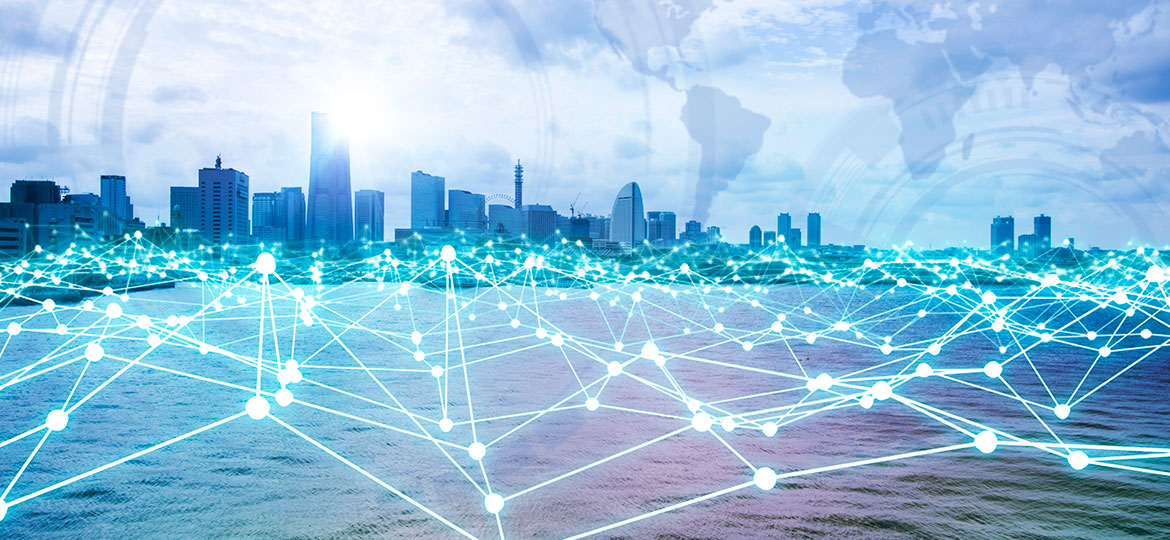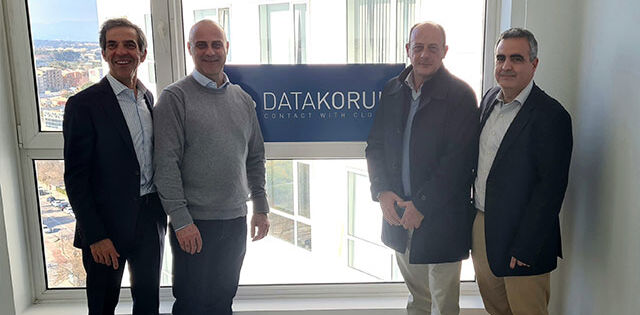
The power of data: the water industry joins the digital transformation in plant management
The water sector is getting ‘smart’ to provide innovative services and solve problems with automation, data collection and analysis. Almar Water Solutions, through its subsidiary Datakorum, is committed to digital solutions and IoT products and services to manage its water treatment plants.
The impacts that the COVID-19 pandemic had on our industry and on society were not all negative. With movement and travel shut down, the water industry was able to update and develop remote technology to improve efficiency and offer ad-hoc services for municipal and industrial customers, in order to avoid losses and downtime at water treatment plants and to make more informed decisions.
But… what is ‘smart water’? The term smart water refers to any emerging technology, including hardware, software and analytics, that helps water and wastewater treatment utilities solve problems through automation, data collection and analysis. These solutions help detect leaks and improve water efficiency, energy efficiency and water quality, among others.
The growing population and urbanization, increasing global water demand, and the need to address high maintenance costs of ageing infrastructure are some of the major factors driving the growth of the smart water management market.
Digital solutions have become an integral part of the operation and maintenance of water infrastructure for analysis and optimization, as well as to reduce costs. Smart technologies leverage data, analytics and the Internet of Things to establish short-, medium- and long-term maintenance plans.
According to the US Water Alliance, municipalities and utilities face a number of challenges that smart water can help solve:
• Maintaining and expanding water infrastructure
• Detecting leaks and anomalies in the water distribution system
• Optimizing energy costs
• Adapting tariffs for customers
• Detecting emerging water contaminants
• Measuring and plotting water quality parameters
• Improving the water treatment process
These solutions make it possible to map meter data to find leaks in water networks, implement energy-efficient distribution, discover and treat emerging contaminants with increased accuracy and data transparency, and develop preventive and predictive maintenance plans using a data-driven approach.
Almar Water Solutions, as a leader in the development of water infrastructure and services, acquired a stake in the digital transformation company Datakorum last March, with the aim of improving and optimizing water-infrastructure management using digital solutions.

Datakorum is a company that provides comprehensive digitization solutions through its proprietary technological ecosystem. They develop everything from sensor and communications hardware to a Smart Cloud Platform and user applications, to simplify the process of acquiring data from infrastructure for visualization by decision makers. Some of the sectors that Datakorum works with include water, Smart Cities, energy and the environment.
Rodrigo Segovia, Chief Technology Officer of Almar Water Solutions and director of the Industry and Technology division, after signing the agreement, commented: “We live in a connected and digitized world. The same is true in the water sector. At Almar Water Solutions, we want to be on the cutting edge of the latest technologies that make it possible to provide optimal and reliable service in the management of water infrastructure. With Datakorum, we are taking this a step further by providing solutions related to data acquisition, analysis and cloud storage”.
Shortly after this transaction, Datakorum was awarded a smart water and energy infrastructure management contract in Abu Dhabi, UAE. The scope of the contract initially covers more than 50,000 5G gateways, with NB-IoT and LTE-M connectivity, which will connect dozens of Plug&Play smart water and electricity meters, that support all of the communication protocols currently used by this type of meter from the main international brands, and five years of associated services. This real-time connectivity will provide customers with access to automatic and detailed readings of their current and past water and energy consumption, so that they can better understand and control consumption. This network will serve as the basis for future demand-side management programs, and the meters will pave the way for smart-grid objectives such as capacity control and outage management.
According to United Nations reports, water scarcity may directly affect nearly 20% of the world’s population by 2025. Smart water systems based on the combination of IoT, Big Data and Artificial Intelligence can help deter these predictions and undo the damage already caused by the reckless use of water resources.
The proliferation of IoT and smart cities at the regional level is also expected to promote the growth of the smart water market. Technological advances in smart meters and their integration with communication solutions (SCADA, GIS, etc.) have transformed water management to address the challenges faced by water utilities, residents and industry in terms of inaccurate billing and water management.
At Almar Water Solutions we are committed to all of these technologies to offer an excellent service in the management of infrastructures and to bring water to every corner of the planet.

